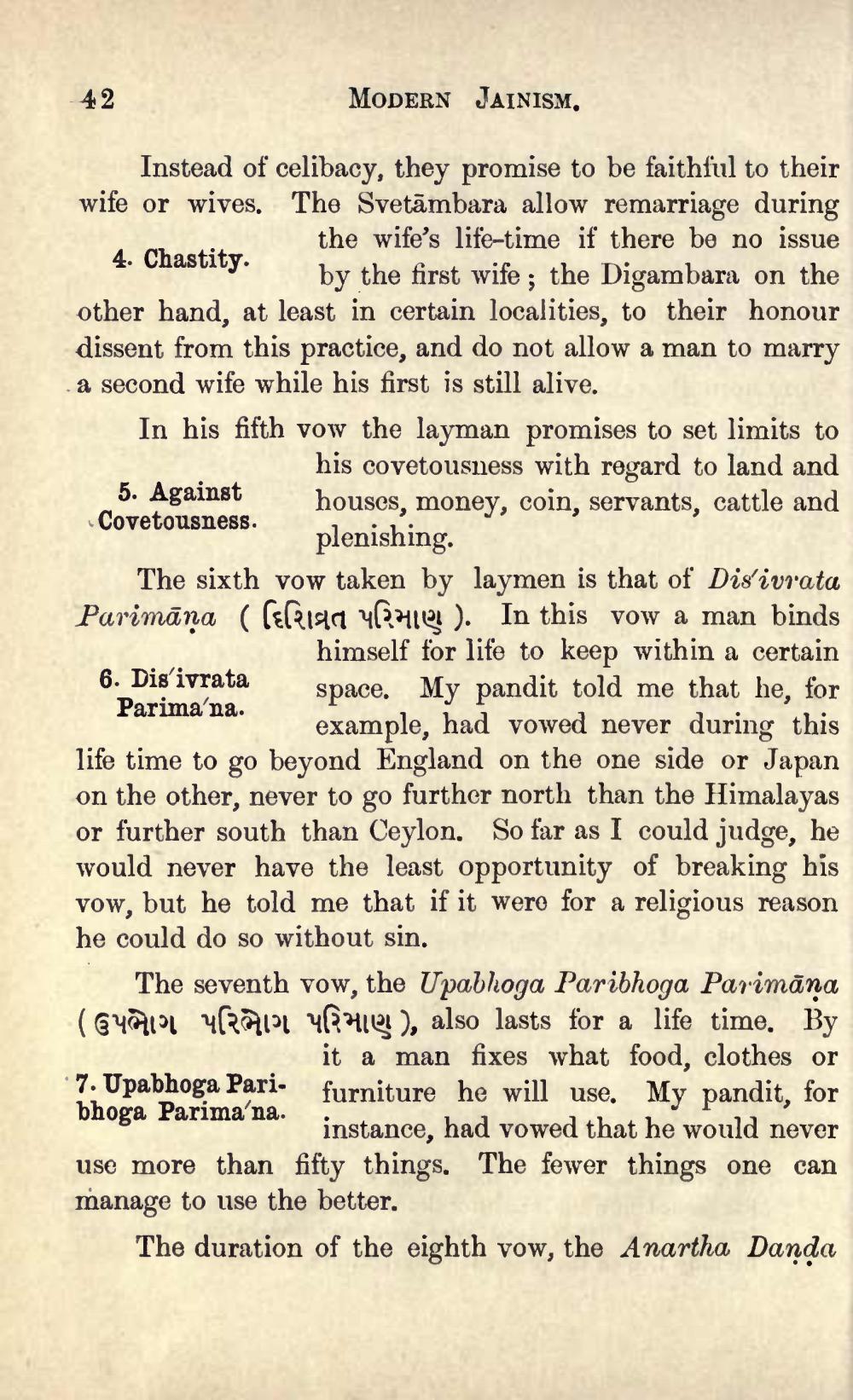________________
MODERN JAINISM.
6. Dig'ivrata
Instead of celibacy, they promise to be faithful to their wife or wives. The Svetāmbara allow remarriage during
the wife's life-time if there be no issue
by by the first wife ; the Digambara on the other hand, at least in certain localities, to their honour dissent from this practice, and do not allow a man to marry a second wife while his first is still alive. In his fifth vow the layman promises to set limits to
his covetousness with regard to land and 5. Against
houses, money, coin, servants, cattle and Covetousness.
plenishing. The sixth vow taken by laymen is that of Dis'ivrata Parimāna ( leliga 4f2HIRI). In this vow a man binds
himself for life to keep within a certain ta space. My pandit told me that he, for Parima'na.
example, had vowed never during this life time to go beyond England on the one side or Japan on the other, never to go further north than the Himalayas or further south than Ceylon. So far as I could judge, he would never have the least opportunity of breaking his vow, but he told me that if it were for a religious reason he could do so without sin.
The seventh vow, the Upabhoga Paribhoga Parimāna ( 6422191 421 YEHR!), also lasts for a life time. By
it a man fixes what food, clothes or 7. Upabhoga Pari. furniture he will use. My pandit. for bhoga Parima'na. instance, had vowed that he would never use more than fifty things. The fewer things one can manage to use the better.
The duration of the eighth vow, the Anartha Danda




